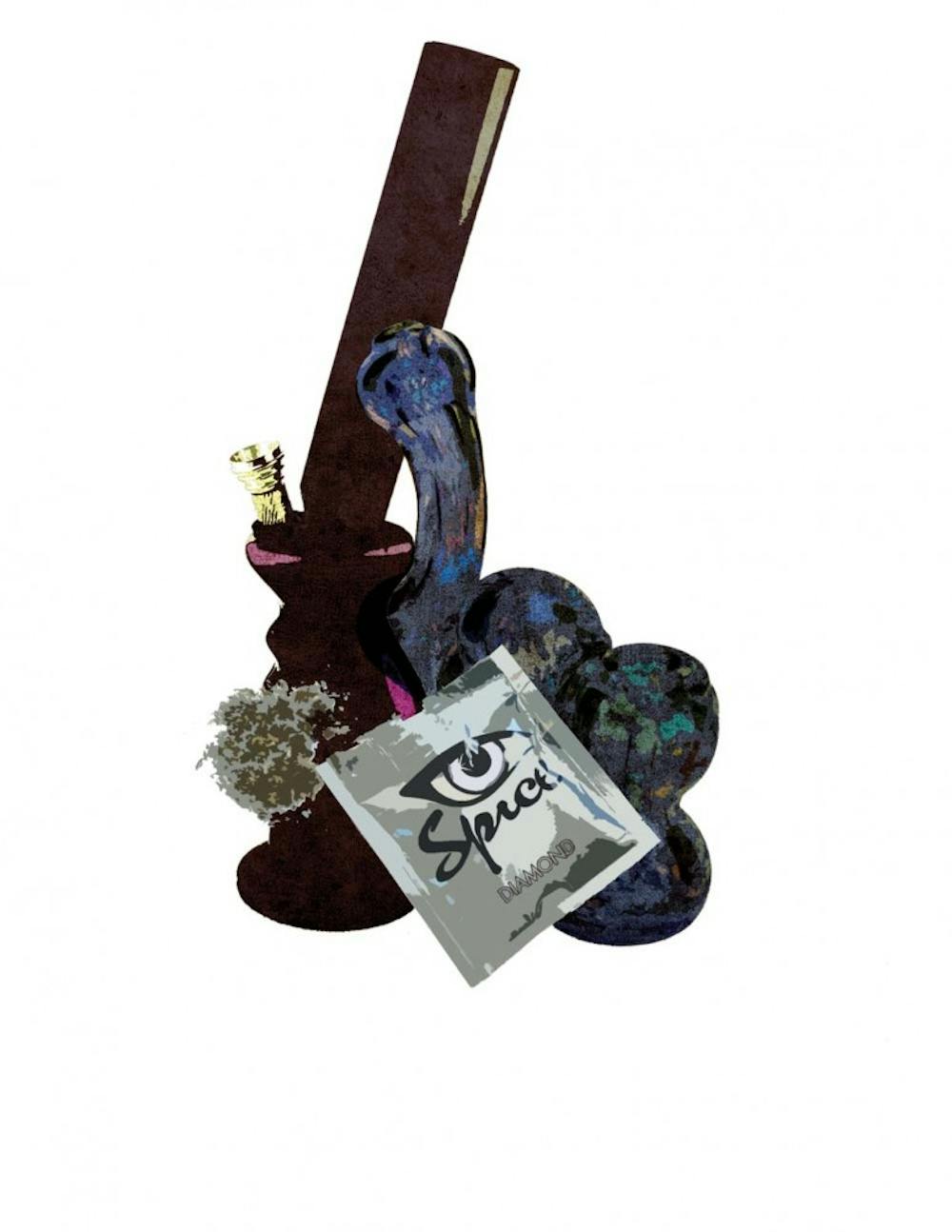Spice, K2 and similar products now illegal nationwide
(Photo Illustration by Alexander Domingo -- The Beacon)
By Elizabeth Vogel, Staff Writer -- vogel11@up.edu
Synthetic marijuana is no longer a legal substitute for marijuana anywhere in the U.S.
On March 1, the Drug Enforcement Administration banned five chemicals that mimic the effects of tetrahydrocannabinol (THC), the chemical in marijuana that results in a high.
The chemicals the DEA temporarily banned are used to make products marketed as Spice incense and K2, which consumers smoke to achieve a high similar to that of marijuana.
"Emergency room physicians report that individuals that use these types of products experience serious side effects which include: convulsions, anxiety attacks, dangerously elevated heart rates, increased blood pressure, vomiting and disorientation," the DEA's website said.
Oregon already banned these products in October for similar reasons.
"Their misuse and abuse by young people have resulted in a number of serious incidents requiring emergency care and hospital admission or death. The abuse of these chemicals has the potential to cause a life-threatening incident," the Oregon Board of Pharmacy said.
The DEA's ban singles out five chemical compounds: JWH-018, JWH-073, JWH-200, CP-47,497 and cannabicyclohexanol.
"I do know that once they've been banned we're supposed to make them hard to get," professor Angela Hoffman of the chemistry department said.
Because those are not the only chemicals thought to mimic the effects of marijuana, there is speculation companies will turn to similar chemicals that are legal so they can continue to sell synthetic cannabis in some form.
Hoffman warns students against such products.
"The safest thing is to assume that every unknown chemical should be handled with caution unless you know it is safe," Hoffman said.
The current ban is temporary. It will last one year. Within that time, the DEA will study the chemicals and decide whether to ban them permanently.








